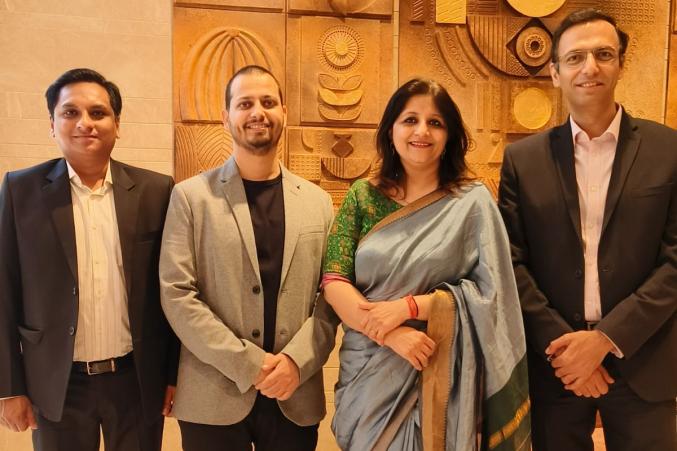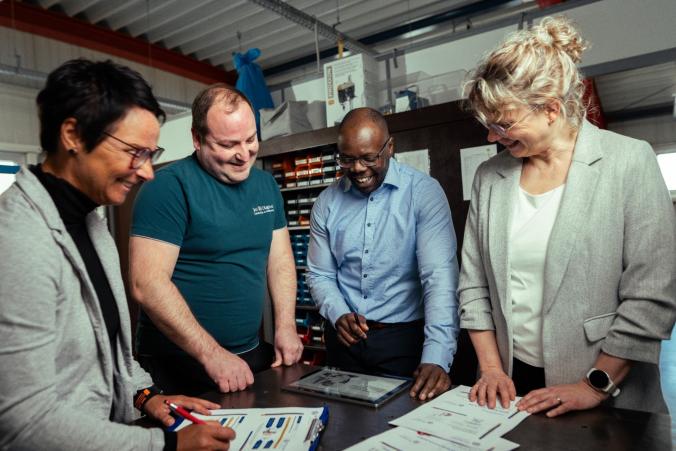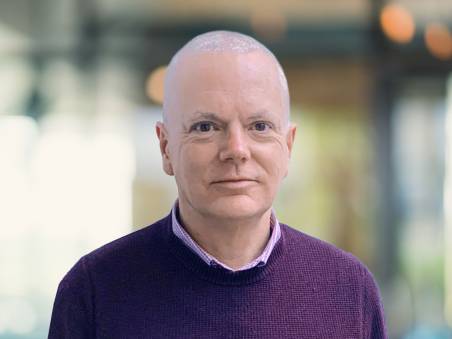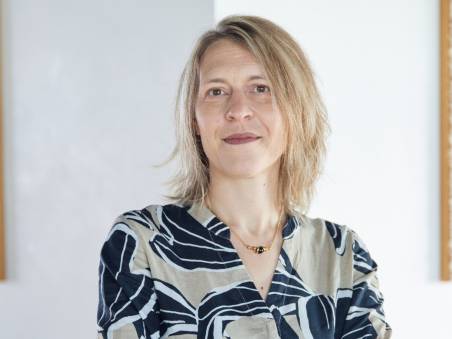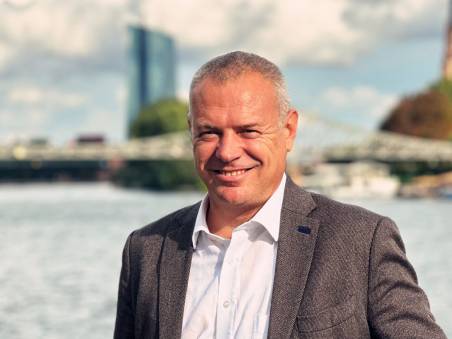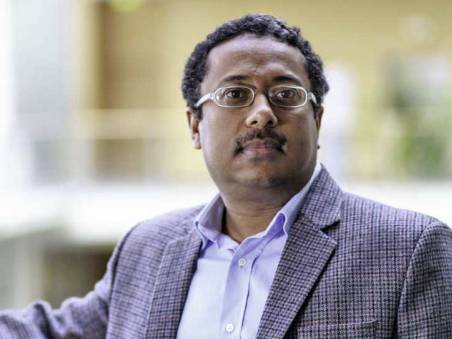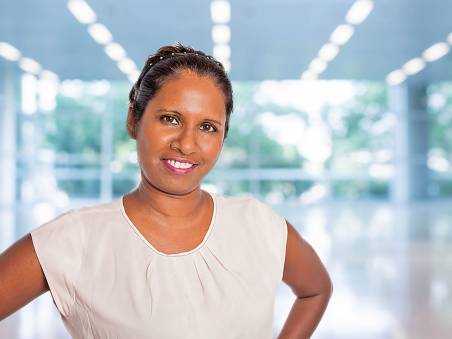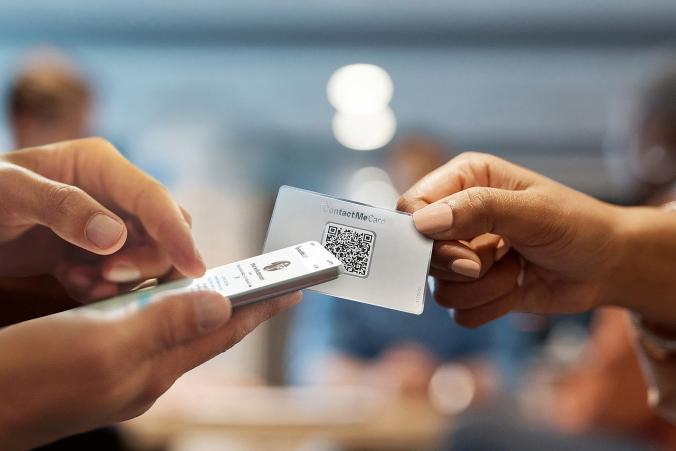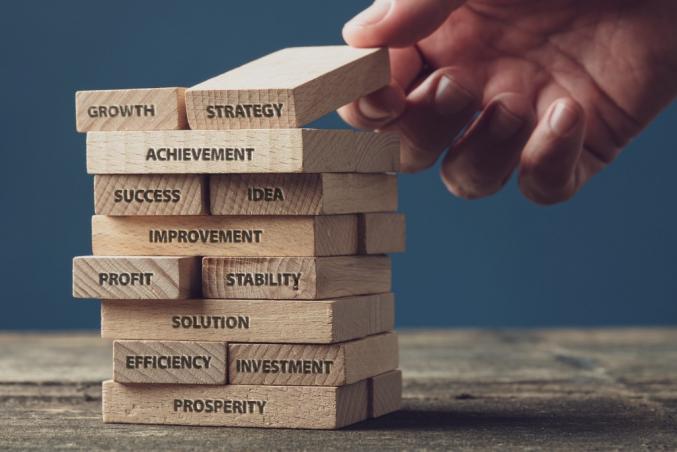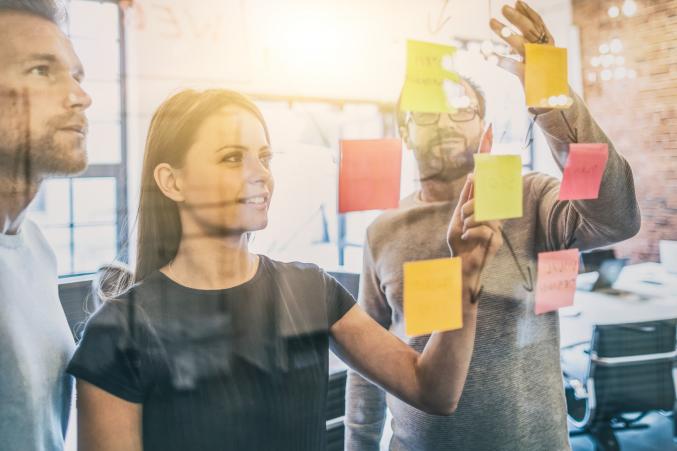Foto: CNTXT8
Frankfurt‘s Sleeping Giant Wakes Up
A Living Laboratory for the City of Tomorrow
Frankfurt am Main is a city of towers. Bank skyscrapers dominate the skyline, but one structure stands apart – a solitary monument from another era: the Europaturm. For decades, the “Ginnheimer Spargel” has sat largely empty. Famous in the ‘90s for legendary parties, today it’s a landmark in limbo.
That’s about to change. The tower is coming back to life – as a living lab for the city of tomorrow.
The Vision
The driving force is Peter Pawelski, founder of Frankfurt-based CNTXT8. A seasoned business architect, Pawelski plans to transform the Europaturm over the next five years into a living symbol of urban renewal and innovation. “The Europaturm can be more than a landmark,” he says. “It can become a place where new tech, capital, culture, and people come together – visibly.”
The Team
Pawelski’s co-founder and CTO, Maximilian Deutschmann, is building a tech platform that helps developers and architects automatically generate comprehensive revitalization strategies and secure financing from investors, banks, and public sources.
Taia Güllich, Community Manager and moderator of the Work Great Festival, makes sure the project doesn’t get lost in tech speak. She’s connecting it to culture, citizens, and international networks.
Technology Meets New Finance
At the project’s core is the link between the physical city and its digital twin – the “Real Omniverse“. Real-time data from traffic, energy, and buildings feeds into simulations. Electric vehicles could automatically find parking and charging. Construction gets reimagined through robotics and automation.
Just as bold is the tokenization model. Property owners stay on the land registry but grant usage rights to investors through digital tokens. Those investors fund revitalization and can trade their stakes securely via blockchain.
According to Pawelski, this makes real estate liquid again – and could make housing affordable for more people.
Diversity as Power
Frankfurt’s perfect for this experiment. Nearly half its residents have immigrant roots –
diversity the Rhine-Main region sees as one of its greatest assets. “A livable city can only be built together,” Pawelski says. “We want to give Frankfurt a new identity – one shaped by its people.”
A Promise to the City
Beyond tech and finance, the Europaturm will return to the public as a cultural hub – concerts, exhibitions, festivals. The project blends international ambition with local roots.
For Pawelski, the mission is clear: the Europaturm is more than a TV tower. “It should be a symbol of renewal and openness – Frankfurt’s promise to its citizens.”
Be Part of It from Day One.
We’re looking for 20 pioneering companies – investors, tech innovators, and urban visionaries – to join the “Field Test Europaturm” and help shape Frankfurt’s smart city future.
Connect with Peter Pawelski or Maximilian Deutschmann at CNTXT8.
www.cntxt8.de
Hessen Trade & Invest
Business contacts in Frankfurt Rhine-Main
One great way to make new friends and find your feet outside of work is to: There are so many ways to get involved and make new connections. You can become a member or get involved in one of the many business associations out there, volunteer with a non-profit organisation, or join a club.
Slow, Steady and Detailed
Germans have kept up their reputation for high-quality work even with less time to work – because they‘re thorough. When Germans work, they work hard.
Task-Masters and Problem-Solvers
Just as „thorough“ is a bit of a catchphrase here, you‘ll also hear a lot of „Ordnung,“ which basically means structure or order.
Business Meetings
It‘s probably best to look at the nature of business meetings in Germany from the perspective of negotiations.
German Corporate Structure
The basic German business structure is pretty hierarchical with clearly defined roles. It‘s clear who‘s responsible for what in a company.
Small Stuff Counts, Big-Time
Another thing that comes from this „the good of the group“ mindset is that being on time is really important in Germany.




